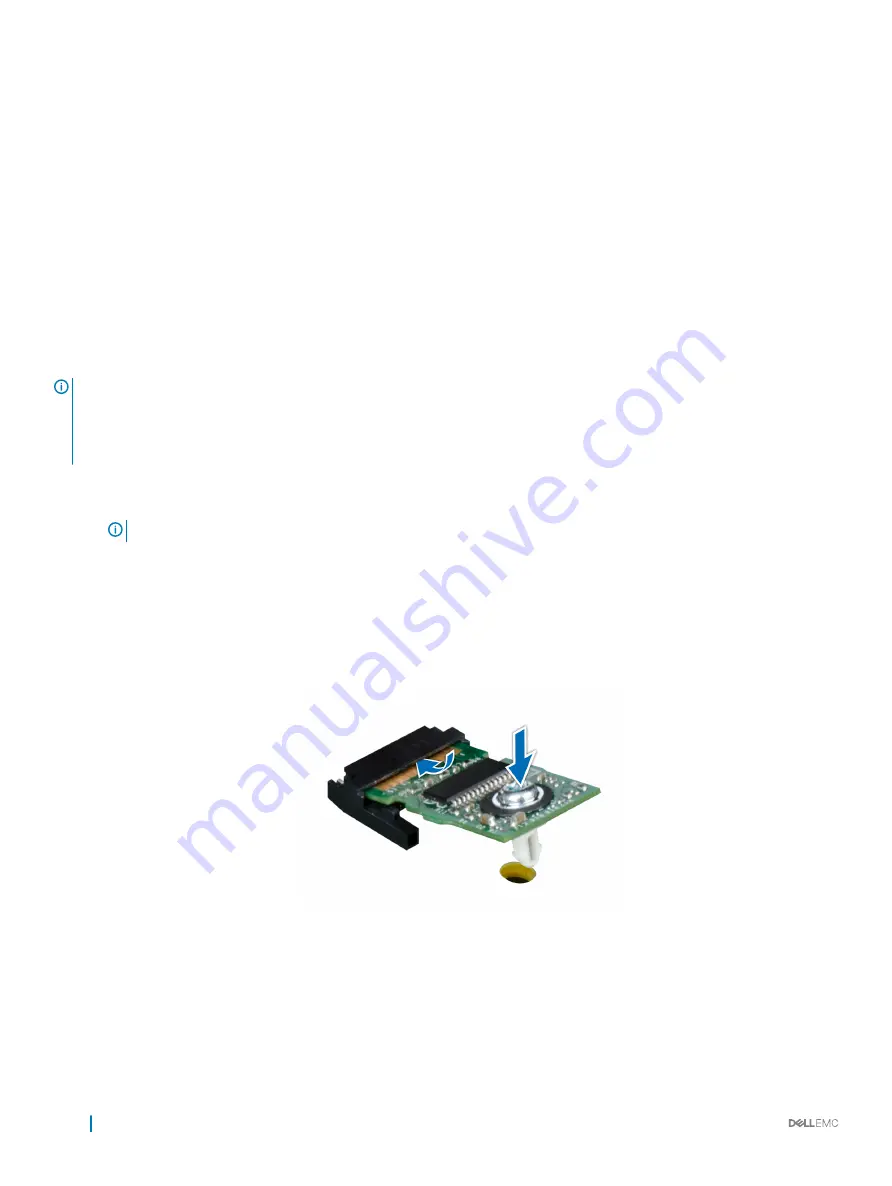
After the restore process is complete, the system restarts.
Trusted Platform Module
Trusted Platform Module (TPM) is a dedicated microprocessor designed to secure hardware by integrating cryptographic keys into devices.
Software can use a TPM to authenticate hardware devices. Because each TPM chip has a unique and secret RSA key which is embedded
during the manufacture of the TPM, it is capable of performing platform authentication operation.
Replacing the Trusted Platform Module
Prerequisites
1
Follow the safety guidelines listed in
2
Follow the procedure listed in
Before working inside your system
.
NOTE:
•
Ensure that your operating system supports the version of the TPM module being installed.
•
Ensure that you download and install the latest BIOS firmware on your system.
•
Ensure that the BIOS is configured to enable UEFI boot mode.
Steps
1
Locate the TPM connector on the system board.
NOTE:
To locate the TPM connector on the system board, see the System board jumpers and connectors section.
2
Press to hold the module down and remove the screw using the security Torx 8-bit shipped with the TPM module.
3
Slide the TPM module out from its connector.
4
Push the plastic rivet away from the TPM connector and rotate it 90° counterclockwise to release it from the system board.
5
Pull the plastic rivet out of its slot on the system board.
6
To install the TPM, align the edge connectors on the TPM with the slot on the TPM connector.
7
Insert the TPM into the TPM connector such that the plastic rivet aligns with the slot on the system board.
8
Press the plastic rivet until the rivet snaps into place.
Figure 151. Installing the TPM
Next steps
1
Install the system board.
2
Follow the procedure listed in
After working inside your system
.
196
Installing and removing system components





























